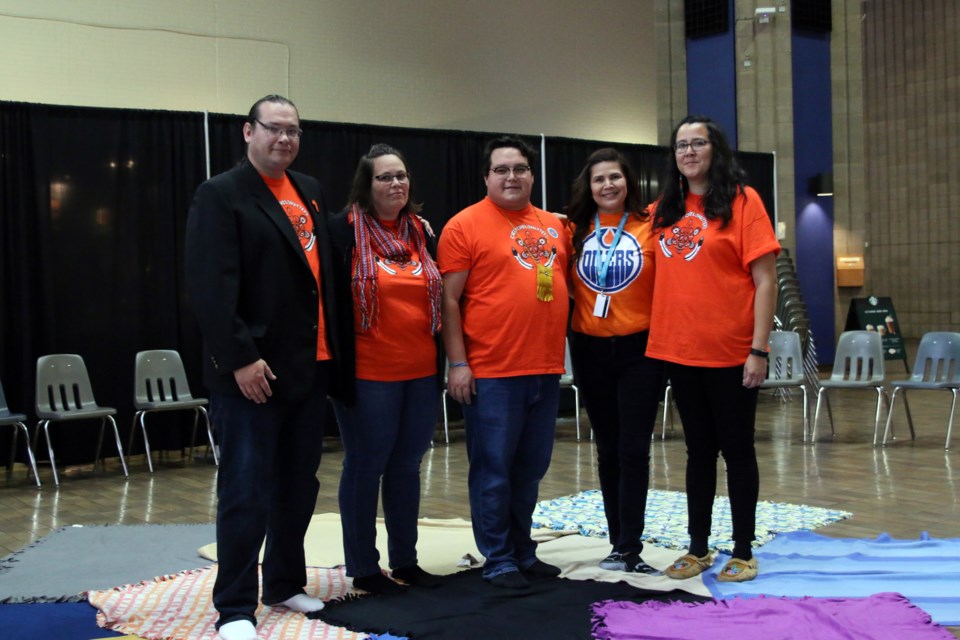THUNDER BAY - Students and faculty at Lakehead University took a walk through the past to learn more about Indigenous people’s history and experiences and to continue to make strides toward reconciliation.
“Everybody has a place and is involved and it’s really about touching not just our minds, but our hearts so we can feel empathy for what happened, and it’s really about understanding our truth so we can move together toward reconciliation,” said Jerri-Lynn Orr, coordinator with the Native Access Program at Lakehead University.
The Office of Aboriginal Initiatives hosted the KAIROS Blanket Exercise on campus on Monday in conjunction with Orange Shirt Day.
The KAIROS Blanket Exercise was created in 1997 as a response to the Royal Commission on Aboriginal People’s Report released the year prior, which calls for more education about Canadian-Indigenous history.
“The Kairos Blanket Exercise walks through 500 years of history, from pre-contact all the way up to today,” Orr said.
During the exercise, participants walk on blankets that symbolize the land and step into the role of First Nation, Inuit, and Metis peoples by reading scrolls. Aspects of Indigenous history that are experienced included pre-contact, treaty making, colonization, and resistance. The exercise concludes with a talking circle.
The KAIROS Blanket Exercise has been held at Lakehead University for the past six years and Orr said reaching out to young people and students is an important step in reconciliation.
“This is the perfect venue for us to do it and spread the word and get it out there,” she said. “We are working on the 94 calls to action from the Truth and Reconciliation Commission. Having this available to students and going into classrooms is really important to the education piece and figuring out how we move together in a good way toward reconciliation.”
Orr added the exercise takes on a special meaning for her, having come from a family of residential school survivors, and it has taught her more about her own past, just like many others.
“To me this is really important because my mother was a residential school survivor and she did pass away, so I do it in honour of her and my aunties and uncles, and all the survivors of residential schools,” she said.
“When I first did the blanket exercise, it really made me understand what happened in my own family. I notice when I do it with students, sometimes they have no clue. When I first went to university, I had no clue that this was my own history. I think it’s a real eye-opener for students, and it puts things into perspective because it’s participatory. It’s like walking in someone else’s shoes.”
